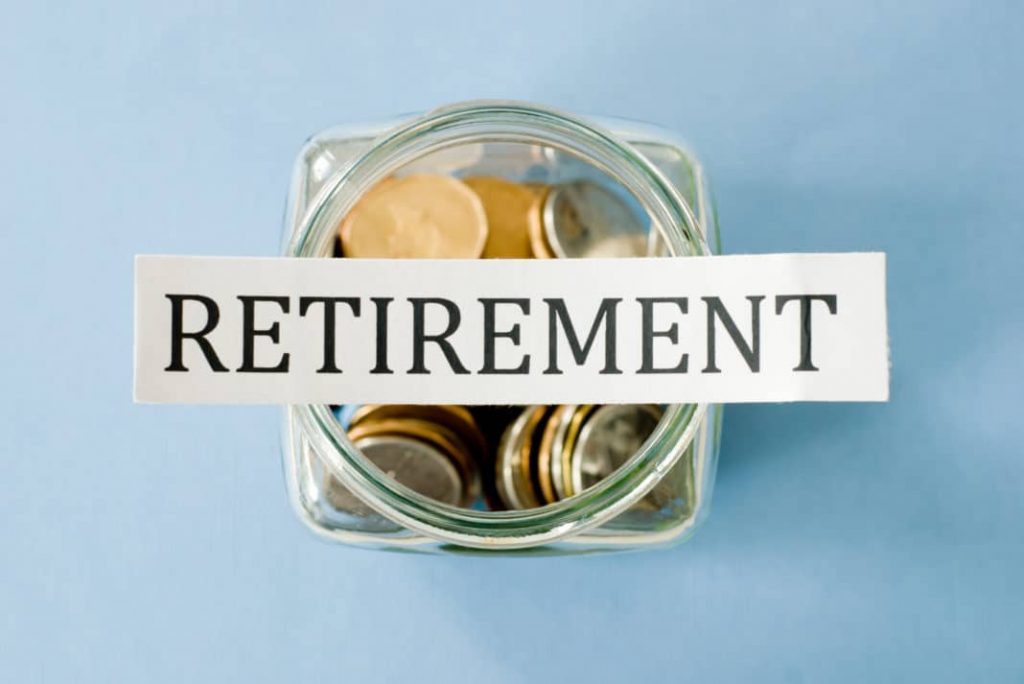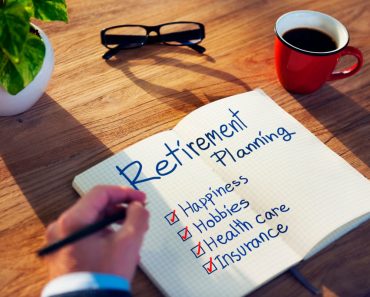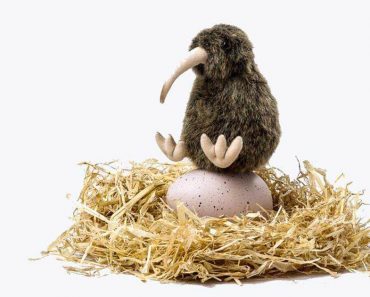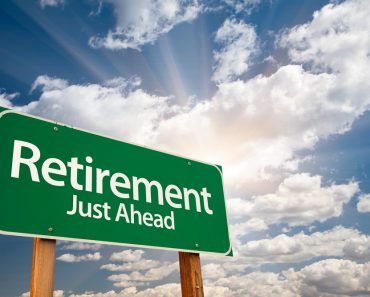
It pays to plan for your retirement as soon as possible. Ask anyone who’s retiring, and they’ll tell you to start saving for retirement as soon as you can. Even if your retirement is a long way off, it helps to start saving for retirement as soon as possible. How much you need to save will depend on your unique situation, but the sooner you start, the better the position you will be in when you finally stop working.
Saving money to fund a comfortable retirement is one of the main reasons people invest. Achieving the right balance between risk and return on investment is crucial to a good retirement savings plan.
While NZ Super (the government pension) can help you get by, it’s your own savings that will help make retirement fun and comfortable.
What is investing?
Investing is best described by billionaire investor Warren Buffett, who describes it as the process of “laying out money now to receive more money in the future.” In the end, people make investments with the aim of making more money than they have invested.
For example, purchasing a house for $500,000 and then selling it for $1,000,000 is just as true an investment as buying shares of Xero for $1.00 and selling them for $40.00. For most people, investing is about making your investments work for you over time without thinking about it.
How can I invest my retirement funds?
There are several ways to invest your money and determining what is right for you will take some reflection. However, many personal finance experts and financial advisors recommend diversifying the investment, i.e. putting a little bit of it into a few different things.
What you’re going to invest in depends on what you think is best for you. Some people prefer low-risk investments. Others like higher-risk investments. But it is important to realize that all investments carry an element of risk nonetheless.
What can I invest in?
There are lots of places and things to invest your retirement income in.
Cash deposits and term deposits
Cash in a bank means you place money in an interest-earning savings account (where you have direct access to the funds) or a term deposit (where the money is off-limits for a fixed period).
Banks offer accounts that are designed to earn interests, but greater returns are received from term deposits. You determine how much you’re planning to invest, from 1 month to 5 years.
Look at the interest rate guide of interest.co.nz to see which bank provides the best interest rates. If you’re uncertain how long you’re planning to invest, start with a three-month or six-month period as interest rates are similar.
KiwiSaver
KiwiSaver is an outstanding savings scheme. With careful preparation and dedication to regular contributions, it will make retirement more convenient and offer more leisure opportunities.
If you’re trying to make a regular contribution to a savings nest egg, KiwiSaver does exactly that. Best of all, you can’t access anything until you turn 65 (other than for particular reasons or when you want to buy a house).
When you join KiwiSaver, you either choose a fund you want to invest in, or if you can’t make a choice, the IRD will choose one for you. After this, your employer will contribute 3% of your gross income to the KiwiSaver scheme. You will have to pay at least 3% of your total income. The costs you pay are those charged by your fund, which consists of two annual payments.
There is a maintenance fee, generally from 0.25% to 2.00% of the value of the fund, plus a membership charge (typically less than $50).
Shares
When you buy a share, you buy a part of a company – the more you buy the more of the company you own. Investors purchase shares and assume the price will increase with time and/or that the dividend (cash return on the share) will continue to be worth the investment.
Shares are a common commodity to invest in, but selecting the right business is not without its risks. NZX, New Zealand’s share market, has lots of success stories like Xero and A2 Milk, but there are also a number of high-profile failures. For example, Snakk Media and CBL Insurance lost investors’ funds in the past.
Property
Buying houses is New Zealand’s longtime favorite investment choice. The concept is simple; you’re purchasing a property with two purposes in mind: renting it to pay for the mortgage and/or generating revenue and expecting an increase in the value over the time you own it. When you decide you want your money back, you put the property up for sale, auction it, and get paid the proceeds.
The rate of return varies based on the form and location of the property. For example, a house in Auckland is likely to increase in value faster than a flat in Greymouth or a lifestyle block in Kaitaia.
The 2020 Covid-19 events have shown that even property is not a ‘secure’ investment. The subsequent economic conditions have significantly impacted property prices in main areas. Much pressure was placed on property investors as AirBnB’s bookings evaporated overnight, and the travel sector as a whole suffered with employment cuts which contributed to less demand for rent.
Interest.co.nz provides valuable insights into the dynamics of the property market. You will need to save the deposit and be willing to pay 8 to 15 percent of the net income to property management if you don’t want to negotiate with the tenants.
Bonds
Bonds are an investment which requires you to lend your cash to a corporation or the government for a set period of time. You’re going to be paid interest just as you would if you had money in the bank, except the interest rate tends to be higher, so there’s more risk.
The more risky the company you invest in, the better the yield (i.e. return on investment). Most KiwiSaver schemes are invested in bonds as part of their fixed-interest asset distribution.
Peer to Peer investments
This is a method of investing recently introduced where you lend to a platform, such as Harmoney NZ, Lending Crowd or Squirrel Money, which loans the money directly to borrowers. The concept is you get a better yield than that given by the banks, as the company carefully assesses whether borrowers will repay the money before they loan out.
Finance Companies
These are private firms that operate by lending your money to borrowers, usually in the form of short-term loans. Finance firms offer you a return on your investment. You should be careful though and do proper research before committing to any company. A few finance firms were in the headlines after the 2008 financial crash and dozens of them went bankrupt due to borrowers not repaying their loans.
Managed funds
These investments come in a variety of ways. The fundamentals are the same – you’re buying ‘units’ in a fund made of underlying shares. For example, a managed fund will be made of 1,000 shares, so the money is distributed over those shares. The gain of the managed investment depends on the performance of all the assets which make up the portfolio.
Managed funds typically incur recurring management fees, which can vary from 0.10 per cent to 5.00 per cent of the value of the investment.
Immediate Annuities
Annuities are a form of insurance, not an investment. Their goal is to generate income, and that’s what you need when you retire.
You guarantee your lifetime profits with an immediate annuity. In return for a lump-sum payout, the insurance company will supply you with a life-time fixed income. The assurance is as good as the quality of the insurance provider who issues it.
Fixed immediate annuities are available as well as variable immediate annuities. Some give income which will rise with inflation, but it means you will start earning a lower monthly payment. You can choose how you want the annuity, whether as a 10-year payout, a joint life payout (ideal if you are married) or a single life payout.
Immediate annuities can be a reasonable option for those who do not have any other means of guaranteed funds, for those who appear to be over-spenders and for single individuals with long-term aspirations.
Dividends and Dividend Income Funds
Instead of purchasing individual shares which pay dividends, you should choose a dividend income fund that holds and operates dividend-paying stocks for you. Dividends will offer a stable stream of retirement income which will increase each year as companies raise their dividend payouts. But in difficult times, dividends can even be reduced or halted entirely.
Publicly listed corporations earn what they call ‘qualified dividends,’ which implies dividends are taxed at a lower tax rate than ordinary income.
For this purpose, it might be more tax-efficient to keep funds or stocks which generate qualified dividends in non-retirement accounts.
A business or venture
This form of investment may be passive or active. This is typically a high-risk investment. For this reason, knowing all the specifics of the business before you invest is particularly crucial. The business may become money vacuums, and you will end up investing more than you initially intended to do.
What do I need to invest well?
You’ll need to do two things to make the right investments which suit your needs. First, asking the right questions to understand the investment would help you to decide whether the investment is for you. Second, you’re going to need to follow simple investing guidelines to better allocate your money among the investments you created.
It is vital to understand the investment in order to achieve the highest possible returns on your money.
How is my money being invested?
It is important to consider how your money is going to be used. For example, if you invest in a managed fund, the funds will be used to purchase a part of the fund. If the investing of the fund performs smoothly, the value of your investment will rise. If you invest in the share market, the money buys a share of a company. The better the business performs in the future, the more likely it is to boost the value of your share.
What are the risks and benefits of investing?
The benefits will usually be the expected rate of return, the potential for an increase in value and a zero rate. Risks could include losing all your money. For example, if you invest in a company and it declares bankruptcy, you’re going to lose all your money. Just as with a finance company – if you make the wrong investments with your money, what you get back may be less than what you put in.
Any investment has a certain amount of risk. Understanding the risk first makes you a smarter investor.
How many years will I have in retirement?
There is no retirement age in New Zealand. NZ Super pays from the age of 65, so you don’t have to quit working to get it. Today, more and more people are working past 65, part-time or full-time.
These days, we’re living longer. On average, 80 percent of 65-year-old men will now expect to live until they are 90 and 65-year-old women until they are 94.
Let’s presume you’re planning to retire at 65. You need to invest or provide another plan to give you the income you want for 25 years or longer, to make sure the money lasts as long as you do.
What does a retirement plan look like?
So how should you plan today, so that you can retire comfortably tomorrow? There are four elements of every successful retirement plan.
The four parts to any retirement or financial plan are:
Step 1 – Set a goal
- The first part of the financial strategy needs to be goal-setting.
- You need to know where you’re headed, so you can plan to get there. Or as Laurence J. Peter said: “If you don’t know where you’re headed, you’re definitely going to end up somewhere else.”
- The key target you set out in the retirement plan
- Lifestyle that you like to enjoy in retirement, and
- What this lifestyle is going to cost
- And after you set this goal would you be able to build a strategy to accomplish it.
Step 2 – Set up your income and expenses so you can save something
The second part of your financial plan is what we call ‘Bank’.
Banks are the first cornerstone of any financial asset plan. But we’re not talking specifically about the location where you store your money. Instead, it’s the money that goes in and out of your bank.
When money goes into your bank account, some of it will be spent on your living expenses, so any extra cash – investments – will be used to set up the second component of your financial strategy – investment.
Step 3 – Build your assets
Investment is the cornerstone of a retirement plan. The aim is to have enough assets so that you can retire comfortably, replacing working for money with a cash stream from the investment sources.
Step 4 – Ensure you’ll be ok if the worst happens
Finally, the last part of a successful retirement plan is to safeguard yourself if you unwittingly find your strategy going astray. When things go wrong, you need a backup strategy.
You’re basically in need of insurance. If you can’t work, the right insurance and risk protection will replace your salary. This means there is still money flowing into the first ‘Bank’ network, and the plan is still on track. Doing this part correctly will make your investment strategy healthy and get you through an economic winter.
Where do I live after retiring?
You will have to reconsider where you want to live later in retirement. An alternative is to move to a retirement village; there are other options, of course.
Living at home
You could choose to live at home, upgrade your house with rails and ramps and get home aid – but take into account the cost of doing so. Take a boarder or move in with family or friends – this is how you will get some comfort and companionship, and maybe some support.
Apartments and townhouses have maintenance and security, but they often charge corporate fees for these features. Be sure you figure out what the payments will be and how long they will be paid.
Retirement villages
Moving to a retirement village is distinct from buying a home. Governmental systems are more complicated and villages differ in terms of housing and amenities, services, assistance and treatment, legal and financial frameworks, philosophy and management.
The decision to move to a village is significant as it has long-term personal and financial implications.
The most common form of legal title for retirement villages is a ‘license to occupy.’ This provides tenants the freedom to remain in the unit, but they do not own the unit, which means that they cannot borrow against the unit. In many cases, people do not have any capital gain when they leave.
Rest homes
Thinking about residential care? The first step is to get needs assessment – especially if you’re in a public hospital. The requirements review would also determine whether you are eligible to qualify for a Residential Care Subsidy. When you apply to qualify, the subsidy and much of the NZ Super can be used to pay for the services, leaving you a limited sum of personal money to use.
The Bottom Line
At the end of the day, safe investments are alright, but playing it too safe can also affect your bottom line. The more places you have your money working for you, the longer it will last in retirement. If your portfolio gets too stable too fast, you’ll lose out on future gains that will come with just a small increase in price. Work with a financial advisor you trust to maintain an acceptable risk profile.
Frequently Asked Questions
How much money do you need for retirement NZ?
University studies suggest a retired couple needs $770 a week on a modest budget. NZ Super is fine, but it leaves seniors at least $170 a week behind. You’d have to save $180,000 to bridge the distance. To raise your salary to $1,000 a week ($400 extra) you will need to save up to $400,000.
What is the safest investment for retirees?
No investment is secure, but there are five (bank deposits, CDs, treasury securities, money market accounts and fixed annuities) known to be among the best assets you can own. Their main objective is to protect the principal. The secondary goal is to generate interest revenue.
Where should a 70 year old invest?
The old thumb rule used to be that you should deduct your age from 100 and that’s the amount of your portfolio you should keep in stock. For eg, if you are 30, you should hold 70% of your portfolio in stock. If you are 70, you can hold 30% of your portfolio in stock.
Are bonds safe if the market crashes?
Bonds tend to be safer than stocks. They have a smaller standard deviation. This means less risk and less volatility.
How can I protect my retirement savings from a recession?
Delay claiming Social Security benefits. The best part about Social Security benefits is they’re guaranteed income for life. …
Build a solid emergency fund. Everybody needs an emergency fund, but it’s especially important to have one when you’re retired.
What is a good rate of return on retirement investments?
The inflation-adjusted total returns for the S&P 500 have been between 5% and 8% for a few selected 30-year cycles. The bottom line is using a 6 to 7% rate of return is a safe idea for your retirement plans.
How much will I need to retire?
Everyone’s retirement needs are different. To work this out, start by thinking about how long you will have in retirement, what sort of lifestyle you will want, and where you will live.
What is a reasonable return on investment?
Generally speaking, once you predict how much your stock market investment will return over time, we recommend you use an average annual return of 6% and recognize that you will see both up years and down years.
Is it better to invest or save?
The greatest difference between saving and investing is the amount of risk taken. Saving usually allows you to make a lower profit, but with practically no risk. Investing, on the other hand, helps you to gain a better return, but you face the risk of losing.
How much money should you have saved before you start investing?
The accepted rule of thumb is you should have money for at least six months’ worth of expenses saved up in an emergency fund before thinking about investing, especially in high risk assets.
Is there a ready market if I need to exit the investment?
This is an important consideration, because being able to get your money out is as important as the return you’re going to get. Shares, bonds and managed funds are investments that can usually be sold quickly, but if you want to sell property and the market is in decline, it might take some time to sell.






